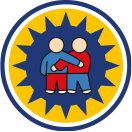Music
Music is a unique way of communicating that can inspire and motivate children. It is a vehicle for personal expression, and it can play an important part in the personal development of people. Music reflects the culture and society we live in, and so the teaching and learning of music enables children to better understand the world they live in, as our music curriculum is linked to our Global Themes. Besides being a creative and enjoyable activity, music can also be a highly academic and demanding subject. It also plays an important part in helping children feel part of a community. We provide opportunities for all children to create, play, perform and enjoy music, to develop the skills, to appreciate a wide variety of musical forms, and to begin to make judgements about the quality of music.
The objectives of teaching music in our school are to enable children to:
- know and understand how sounds are made and then organised into musical structures;
- know how music is made through a variety of instruments;
- know how music is composed and written down;
- know how music is influenced by the time, place and purpose for which it was written;
- develop the interrelated skills of performing, composing and appreciating music;
- know and understand musical vocabulary.
Teaching and learning style
At Park Primary School we make music an enjoyable learning experience. We encourage children to participate in a variety of musical experiences through which we aim to build up the confidence of all children. Singing lies at the heart of good music teaching. Our teaching focuses on developing the children’s ability to sing in tune and with other people. Through singing songs, children learn about the structure and organisation of music. We teach them to listen to and appreciate different forms of music. As children get older, we expect them to maintain their concentration for longer, and to listen to more extended pieces of music. Children develop descriptive skills in music lessons when learning about how music can represent feelings and emotions. We teach children to make music together, to understand musical notation, and to compose pieces.
Music curriculum planning
Our school uses the Charanga Music School program, and units are selected by teachers to match the needs and interests of their class, while making links with their Global Themes. While there are opportunities for children of all abilities to develop their skills and knowledge in each teaching unit, the progression planned into the scheme of work means that the children are increasingly challenged as they move through the school.
Early Years Foundation Stage
We teach music in reception classes as an integral part of the topic work covered during the year. EYFS use the Development Matters (September 2020) to shape thier curriculum and inform planning towards meeting the Early Learning Goals (ELGs) set out in the Statutory Framework (July 2020). The development of children’s artistic and cultural awareness supports their imagination and creativity. The quality and variety of what children see, hear and participate in is crucial for developing their understanding, self-expression, vocabulary and ability to communicate through the arts. The frequency, repetition and depth of their experiences are fundamental to their progress in interpreting and appreciating what they hear, respond to and observe. The children in reception will be learning to: Listen attentively, move to and talk about music, expressing their feelings and responses. Watch and talk about dance and performance art, expressing their feelings and responses. Sing in a group or on their own, increasingly matching the pitch and following the melody. Explore and engage in music making and dance, performing solo or in groups.
Music Development Plan
Please view the document below for the Music Development Plan.

